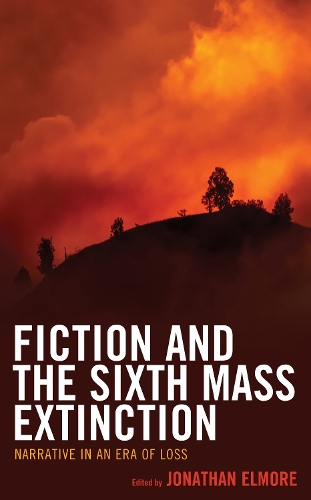
Fiction and the Sixth Mass Extinction: Narrative in an Era of Loss
(Hardback)
Available Formats
Publishing Details
Fiction and the Sixth Mass Extinction: Narrative in an Era of Loss
By (Author) Jonathan Elmore
Contributions by Jonathan Elmore
Contributions by Michael Fuchs
Contributions by Christy Tidwell
Contributions by Kristen Figgins
Contributions by Bridgitte Barclay
Contributions by Erin DeYoung
Contributions by Allan Rae
Contributions by Christina Lord
Contributions by Jenni G Halpin
Bloomsbury Publishing PLC
Lexington Books
1st April 2020
United States
Classifications
Professional and Scholarly
Non Fiction
820.93556
Physical Properties
Hardback
178
Width 160mm, Height 233mm, Spine 20mm
440g
Description
Fiction and the Sixth Mass Extinction is one of the first works to focus specifically on fictions engagements with human driven extinction. Drawing together a diverse group of scholars and approaches, this volume pairs established voices in the field with emerging scholars and traditionally recognized cli-fi with texts and media typically not associated with Anthropocene fictions. The result is a volume that both engages with and furthers existing work on Anthropocene fiction as well as laying groundwork for the budding subfield of extinction fiction. This volume takes up the collective insistence on the centrality of story to extinction studies. In various and disparate ways, each chapter engages with the stories we tell about extinction, about the extinction of animal and plant life, and about the extinction of human life itself. Answering the call to action of extinction studies, these chapters explore what kinds of humanity caused this event and what kinds may live through it; what cultural assumptions and values led to this event and which ones could lead out of it; what relationships between human life and this planet allowed the sixth mass extinction and what alternative relationships could be possible.
Reviews
Among the myriad catastrophes facing our world, there is perhaps none more significant, or more difficult to contemplate, than the prospect of a sixth mass extinction wrought by human action. The annihilation of our fellow Earthlings is tragedy of a different order from the related concepts of anthropogenic climate change and the Anthropocene, and their most devastating conclusion. As the essays collected here dramatize, weighing the implications of this rending of the web of life forces us to confront the question of what species are, why they are valuable, and what it means to be human. In thinking about the implications of the sixth extinction for human storytelling, they seek to intervene in this most tragic of narratives, in hopes of forging an alternate ending. -- Jesse Oak Taylor, University of Washington
Author Bio
Jonathan Elmore is assistant professor of English at Savannah State University.
